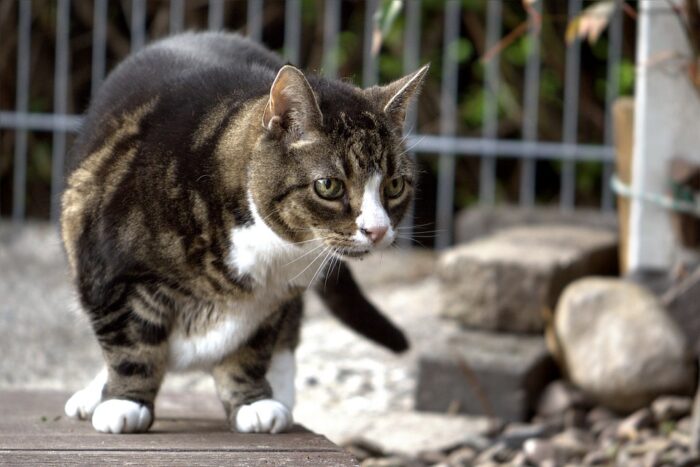Felines are a joy to have around. Not only do they make your life entertaining, but they are also a good companion. Due to this, most cat owners fail to admit that their friends are quickly approaching their twilight years. Just like any other living thing, cats get old, one way or another.
However, unlike humans, cats have a life expectancy of 16 years. While this is on the average side, some cats are known to live to 30 years or more. A good example is Creme, a cat who lived for 38 years.
So, what changes should you make as your feline friend ages? Unlike kittens, senior cats undergo a lot of changes. With these changes comes a change in behavior, diet, and overall physical well being. They will require that you make changes as well to ensure that your car adapts well. It is important to make sure that you properly prepare your home for your senior pet.
Read along to find out what changes you should make to ensure that your cat is not only comfortable but spends its twilight days gracefully.
7 Things to Change as your Cat Ages
1. Decreased Exercises
When cats get older, it’s not uncommon for them to become more sluggish. This is mainly because their muscle tie and energy levels are not what they used to be. This makes it hard for your cat to exercise normally.
While exercise still plays an integral role in a cat during its twilight days, you will have to engage your senior cat in minimal exercises. Exercising your cat once a day will go a long way in ensuring that your cat is physically fit and comfortable as well.
2. Diet
Cats spend close to 40% of their lives as seniors. During this time, your cat may undergo a lot of physical as well as metabolic changes.
While this may seem detrimental, you can balance all these changes with a change in diet. The diet should include small bits of tasty food that is easy to digest. Additionally, the food should have less fat and a high protein count. A good example is Purina One Grain Free Cat food that is not only nutritious but well suited for older cats as well.
3. A Change In Schedule
As your cat ages, you should expect to have an upside-down schedule. This includes a change in everything that your cat used to do.
When felines age, they tend to change their sleep schedule. As kittens, cats will often sleep at night and play all through the day. However, as they age, they tend to do the opposite. You should anticipate this change as your cat ages on.
4. Minimize Aggression
One of the cardinal signs of an aging cat is unprovoked aggression. You will notice your cat becoming startled and uneasy if aggressively approached.
This is mainly due to a reduced sense of vision, smell, and mobility, thus making it harder for your cat to sense when people are approaching.
To keep your cat settled and comfortable, ensure to evoke minimal aggression. Gently approach your cat from the front each time to avoid provoking him.
5. Increase Litter Boxes in Your House
Elimination is one of the biggest challenges that an aging cat will have. While you may see your cat littering around as willfully being disobedient, it is mainly due to aging.
There are many causes of inappropriate elimination of waste by aging cats. These include an increased urge to eliminate waste, difficulty moving around and less control over the bladder and bowel.
Before going forward with the decision to increase the number of litter boxes, ensure to take your aging cat to the vet. This way, you can eliminate any digestive or cognitive issues. Once this is sorted out, you can then go ahead to strategically place different litter boxes in your house.
6. Increased Trips to the Vet
An aging cat often develops a number of conditions, both physical and mental. Mental difficulties are perhaps the most common in an aging cat.
Just like Alzheimer’s in humans, an old cat can experience severe mental decline. They tend to get confused about things that were once familiar.
In a bid to tackle these conditions head-on, ensure to regularly take your cat to your vet for a checkup. This way, your cat will be assured of healthy living as it goes through its twilight days.
7. Regular Massage
While it’s natural for humans to lose pigmentation on their skin as they age, it’s equally normal for older cats to lose their sheen. Their fur often tends to be thin, though it’s often quite difficult to detect.
Ensure to massage your aging cat regularly. This will not only go a long way in helping your cats sheen, but it will also help to reduce any anxiety that your cat might be experiencing.

